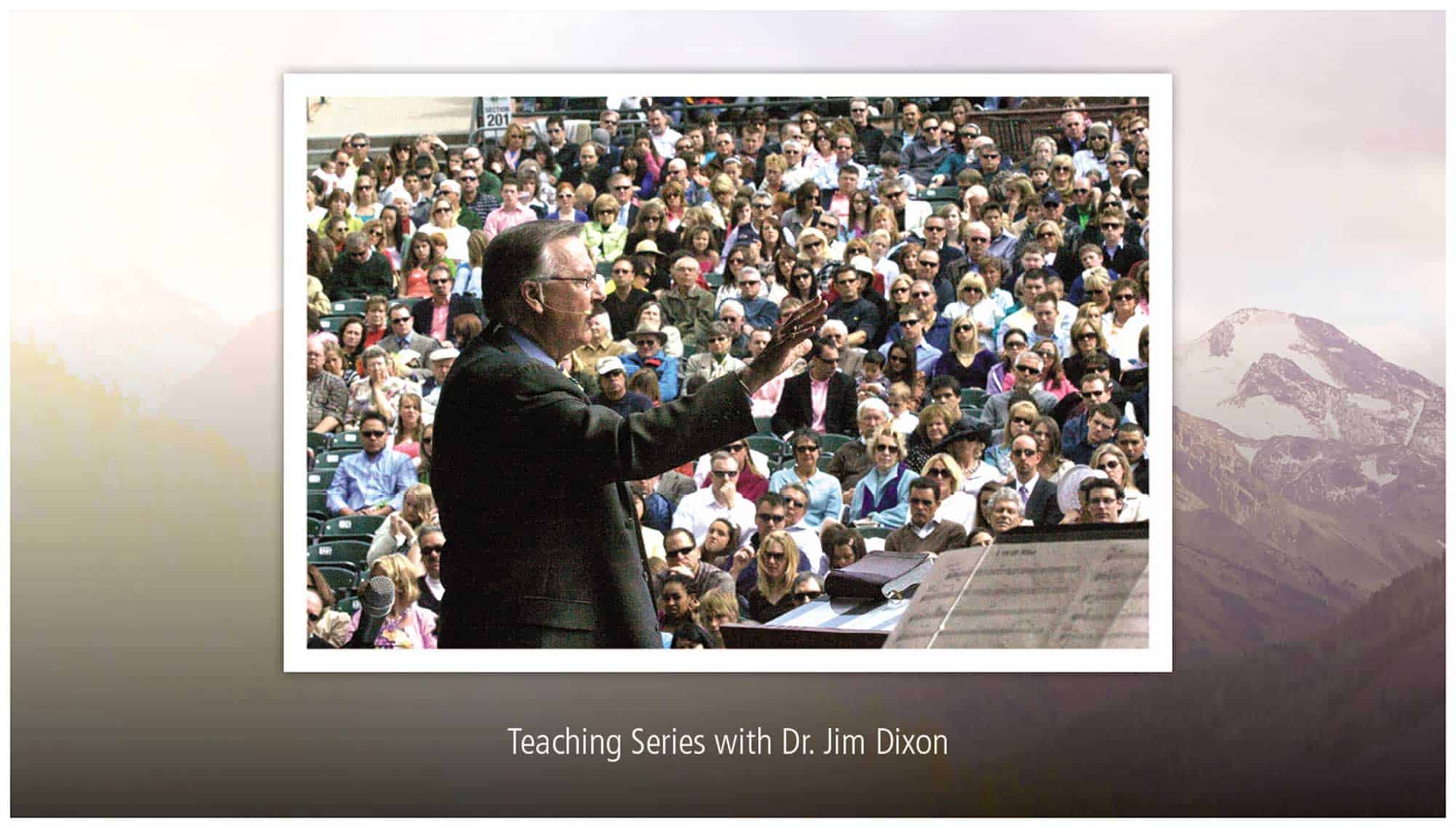THE MOTHER OF MOSES
MOTHER’S DAY
DR. JIM DIXON
EXODUS 1-2
MAY 10, 1992
“Jehovah is glory.” That is the meaning of the Hebrew name Jochebed. In the Bible, the woman who bore that name also bore a child who became one of the greatest leaders the world has ever known. Jochebed was the mother of Moses. Now, Moses, of course, defied the pharaoh of Egypt. He led 2 million Jews out of bondage. He crossed the Red Sea as if upon dry land, and he led the children of Israel to the very brink of the Promised Land. But Jochebed was not only the mother of Moses, she was also the mother of Aaron, who was the high priest of Israel. She was also the mother of Miriam who was both a prophet and a poet.
By all accounts, Jochebed was one of the greatest moms in biblical history. From her life, we draw two themes, and I want to focus briefly on these two themes this morning. The first theme is faith. You see, the Bible says, “Without faith, it is impossible to please God.” Certainly, it’s impossible to be a godly mom without faith.
Now, in the year 200 AD, two young mothers were executed by the Roman Empire, Christian martyrs. These two women were named Perpetua and Felicitous. Felicitous was the slave of Perpetua. But in truth, they were more like sisters and they were best friends. Both of them were very young. Perpetua was 22 years old. She had just accepted Christ that year. She had just had a baby that year, a little boy. You see, that was the year that Septimius Severus, the emperor of the Roman Empire, proclaimed that all citizens throughout the empire had to burn incense on the altar of Caesar and say, “Caesar is Lord.” He also decreed that all people throughout the empire had to burn incense on the altars of the Roman pantheon, the Roman deities, and worship Roman gods.
Now, these laws were not enforced uniformly, but they were enforced selectively, and somehow it was required of Perpetua and her slave Felicitous that they would worship Caesar and worship Roman gods. As new Christians, they refused. Their commitment to Christ was already strong, and they refused. They both said Jesus is Lord, and they would not worship Caesar, and they were incarcerated.
Now, we know these things because Perpetua was the first Christian woman writer. She was from a very wealthy family. She was highly educated. She knew Greek, she knew Latin. She kept a diary of her life. We have that diary. In that diary, Perpetua describes the experience she had when she gave her heart to Jesus Christ as Lord and Savior. In that diary, she describes the birth of her son and the joy that was hers. In that diary, she describes as well the defiance of the Roman authorities and how hard that was, and the fear and the courage that was mixed in her heart. Then in the diary, she describes her incarceration and she explains how her father came to the prison. Her father was not a Christian, and he came begging her to renounce Christ and live. She explains also how a short time before she was taken into the arena and fed to wild animals, a short time before that her baby was brought to her, and she held her baby in her arms, and she entrusted her baby to God. She entrusted her little child to Christ, that Christ would protect that child and bless that child in the years ahead. Then Perpetua and Felicitous both were executed in a Roman arena, their children reared by the early Christian Church.
It was St. Augustine, who pointed out that these two names Perpetua and Felicitous, when they’re combined, mean everlasting happiness. Certainly, these two young mothers, these two women, have everlasting happiness because they’re in heaven with Christ today through their faith in Jesus Christ. It was that same faith that enabled them to entrust their children into the care of God. You see, in a sense, this is what Jochebed did. She had faith to entrust her child into the hands of God. I mean, that’s how she had the courage to defy the edict of Pharaoh that all male Jewish babies would be killed. She hid Moses for three months. When she could hide him no longer, she in faith put him in a specially prepared basket in the reeds by the Nile’s edge, trusting that somehow God would rescue him, trusting that somehow God would provide for him and protect him. That is faith.
Through the centuries, there have been many moms who have in faith entrusted their children to the Lord. Sometimes because the mom was dying, sometimes because the child was dying. In truth, all Christian moms are meant to trust their children to the Lord. In infant dedications like we had this morning, part of what’s being said there is we’re entrusting our children to the Lord and to His care. We’re promising to rear them in the nurture of the Lord, but we’re entrusting them to the Lord. It takes faith to raise kids. It takes faith to rear them year by year. It takes faith to let them go when they’ve grown up into this crazy world.
You know, I used to think that when your children grow up, your work is done. I mean, they leave the house and your work is done. I’m beginning to think differently. We got a 17-year-old daughter, and she’s a young woman now. Our son is 14 and he’s becoming a young man. It’s hard to believe how time flies by, and it won’t be long before they leave our house. It takes faith to trust them to the Lord. It takes faith now to trust our children to the Lord. And yet that’s what is required. I’m so grateful for moms, Christian moms through the centuries who’ve been able to trust their children to the Lord. How could Jochebed ever have known how God would provide for her son? She could not have imagined in her wildest dreams that Moses would grow up to lead her people, that he would lead her people out of bondage and to the very edge of the Promised Land itself. This all happened by the power of God and because of a mother’s faith.
Now, when we look at Jochebed, there’s another theme, a final theme I wanted us to look at briefly this morning. That’s the theme of love. You see, Jochebed loved her children, and there’s a great power to a mother’s love. Ashley Montagu wrote a book years ago called The Elephant Man, and perhaps some of you have read that book written by the anthropologist. In Montagu’s book it describes the life of Joseph Merrick, who was more commonly called John Merrick. He was afflicted with a disease that today is called NF, neurofibromatosis. He had this disease in an extreme form and the disease grossly disfigured his face and person so that he was called the elephant man.
He was exhibited as a carnival side show all over England and even in other countries in the 19th century. His face was monstrous, grotesque, hideously deformed. He was grotesque, but he was not retarded. He understood the horror that people felt when they looked at his face. It’s hard for any of us to even imagine the mental and emotional pain that John Merrick experienced every day of his life. Yet, in the midst of this, he had no hate. He did not have hostility. He was not antisocial. He was not bitter. It was said of John Merrick that he had come through the fire unscathed. He was kind, he was gentle, he was loving, he was affectionate. He was able to love others, and he was able to love himself.
How could this be? I mean, a man so hideously deformed, how could this be? Montagu says that, in his view, it was all because of his mother’s love, all because of John Merrick’s mom and her love for him. She loved him unconditionally. She loved him completely, and that love had power to shape him, power to mold him, power to form him, and transform him. A mother’s love. You see, he would’ve had a deformed personality to go with his deformed body if it were not for his mother’s love. Without mother’s love it would be easy for any of us to have deformed personalities. I mean, who knows what Moses would’ve turned out like if he didn’t have a mother’s love?
If you know the story in the Bible, you know that when Jochebed placed Moses in that basket, that wasn’t the last time she saw him, because something very miraculous happened. I mean, as she placed her little baby in that basket, Pharaoh’s daughter coming to bathe in the Nile River found the baby Moses in the basket. And by the power and will of God, she felt drawn to this child and she longed to take this child as her own. In that moment, Miriam was watching, the older sister of Moses, and Miriam ran up to Pharaoh’s daughter and said, “Would you like me to find a good Jewish woman to be kind of a nanny for this baby?” And the Pharaoh’s daughter said, “Yes.” Miriam went and found her own mother, the mother of Moses, and she was able to rear her child and love her child, and by her love to shape her child. Who knows what Moses would have been like without his mother’s love if he had just been reared in the house of Pharaoh?
I mean, he might have become a pompous jerk. He might have grown up to hate his own people. He might have grown up to hate all people. He might have grown up to hate God, but it was a mother’s love that shaped him.
You know, I feel, as I’m sure many of you do, I’m thankful for my mother’s love. I know my brothers feel the same. There are plenty of flaws in my life, but there’s no telling what I would’ve been like without a mother’s love. You might be sitting there and you might be thinking, “Well, that’s well and good, but I never had a mother’s love.” I mean, there might be some of you who are sitting there and saying, “Well, you know, I never really had a good family experience and I never had a mom to really love me for whatever reason.”
I know that before this service is over this morning God wants you to understand that there’s a greater family and there’s a love that’s even greater than a mother’s love. I’d like to conclude this service by just mentioning briefly what we might call the motherhood of God. Now, if you know me, you know that I’m not a radical feminist. If you know me, you know that I’m not a theological liberal. Of course, I know that the Bible uses the masculine gender when referencing God. I know that we call God Father in obedience to the scriptures, and even our Lord Jesus Christ taught us to call God “Abba,” which quite literally means daddy. But it would be a mistake, it would be a grave mistake, to assume that the Father of our Lord Jesus Christ is a man. The Father of our Lord Jesus Christ is not a man. In fact, in the Bible, God says, “I’m not a man or the offspring of men.” God is spirit. The Bible says men and women are equally created in the image and likeness of God.
The truth is that in the Bible oftentimes you see feminine language describing God’s character and person. One of God’s favorite images of Himself is the image of a mother bird. Time and again, in the Bible, God uses the image of a mother bird to describe Himself. As the mother bird gathers under her wings her brood, gathers under her wings her children, and nurtures them and protects them and provides for them, so God uses this image of Himself. One of my favorite verses in the Bible is Isaiah 66:13, where God says to His people, “I will comfort you like a mother.” I will comfort you like a mother. God says, “I will comfort you like a mother comforts her children.” Now, I think one reason I like that verse so much is because I have a hard time imagining that from a father.
You see, my dad is a great dad, and I respect him so much, and there’s so much to respect there. I mean, I saw leadership in my dad and strength and faithfulness and courage and provision. But you see, one thing my dad wasn’t real strong on was comfort. He wasn’t real strong on comfort. Where I grew up, we had a long driveway made out of asphalt, and it was real bumpy. Sometimes I would, you know, skateboard down that driveway and I would fall, flip off the skateboard and just slide on my bare knees. Your knees were not meant to be brake pads. I can remember when I’d run into the house, you know, and I’m kind of bleeding and crying, my dad might make a joke out of it. He might just point to where the band-aids are or he might give me a lecture about carelessness, you know.
But my mom, when I would see my mom, it was comfort. I mean, she felt my pain and I knew it. How great it was to see this verse where God says to His people, “I will comfort you like a mother. I will comfort you like a mother comforts her children.”
You see, I don’t think God wants this Mother’s Day to end for you without you knowing that He has a family and He wants you in it. The truth of the matter is that even if you’ve had a bad family background, you can be adopted into a wonderful family, an eternal family, the family of God through faith in His Son Jesus Christ. What Jesus Christ has by nature, as Son of God, we can have through adoption, we can be children of God. And His love can begin to shape and mold and transform us.
So as we close this service today, on this Mother’s Day, as we conclude in prayer, I want to give all of you a chance to make sure you’re in the family of God and you’re being molded and shaped by His love. Let’s conclude with a word of prayer.




